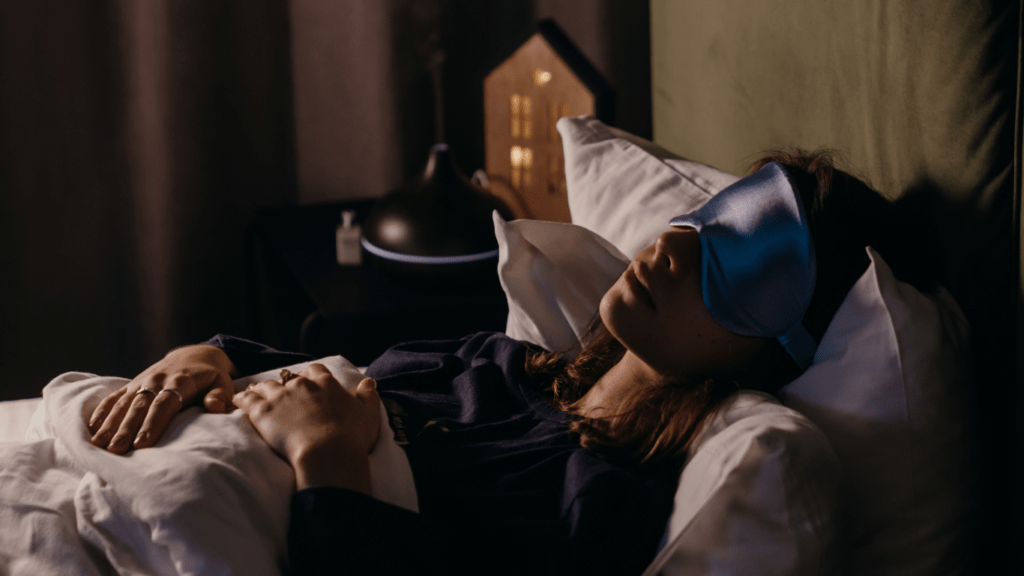Understanding Mindfulness and Sleep
Mindfulness, an ancient practice rooted in meditation, involves focusing on the present moment without judgment. This practice enhances awareness and acceptance of one’s thoughts and feelings. When individuals apply mindfulness techniques before sleep, they often experience a reduction in stress and anxiety, which are common obstacles to restful sleep.
Sleep quality directly influences daily functioning, affecting memory, mood, and overall health. Poor sleep disrupts these functions, leading to cognitive impairment and emotional instability. Mindfulness helps mitigate these disruptions by fostering a state of relaxation, making it easier to fall and stay asleep.
Studies show that mindfulness-based interventions improve sleep outcomes. For example, a 2015 study published in JAMA Internal Medicine found that mindfulness meditation significantly improved sleep quality in older adults with moderate sleep disturbances. Regular mindfulness practice also strengthens the mind-body connection, further promoting restorative sleep.
Benefits of Mindfulness on Sleep

Mindfulness techniques can significantly improve sleep by addressing core issues that disrupt it. Let’s explore how mindfulness reduces stress, enhances sleep quality, and promotes relaxation.
Reduced Stress and Anxiety
Mindfulness practices help lower cortisol levels and reduce the body’s stress response. Stress and anxiety often inhibit the ability to fall asleep or stay asleep. Mindfulness, through practices like deep breathing and progressive muscle relaxation, interrupts the cycle of racing thoughts, making it easier to relax and unwind before bed.
Improved Sleep Quality
Many studies have shown that mindfulness directly improves sleep quality by increasing sleep efficiency and reducing time spent awake in bed. People practicing mindfulness report fewer awakenings during the night and experience more restful, continuous sleep. Enhanced sleep quality leads to better mood, cognitive function, and physical health.
Enhanced Relaxation
Engaging in mindfulness exercises promotes overall relaxation. Techniques such as guided imagery and body scan meditations relax the mind and body, setting a positive pre-sleep routine. Improved relaxation not only makes it easier to fall asleep but also helps maintain deeper stages of sleep, leading to more restorative rest.
Techniques to Try
Mindfulness has numerous techniques to help enhance sleep quality. Exploring these methods can uncover ones that fit individual needs and preferences.
Mindful Breathing
Mindful breathing focuses on conscious breath control. I inhale deeply through the nose, hold it for a few seconds, and exhale slowly through the mouth. This rhythm reduces heart rate, calms the mind, and signals the body to relax. Practicing for at least five minutes before bed enhances relaxation.
Body Scan Meditation
Body scan meditation involves shifting focus across different body parts. I start at the toes and gradually move up to the head. At each part, I notice sensations, tensions, or discomfort and consciously release them. This technique heightens bodily awareness and promotes complete relaxation, helping ease into sleep.
Guided Imagery
Guided imagery uses visualization to create calming scenarios. I close my eyes and picture a serene place, such as a quiet beach or tranquil forest. Imagining details like:
- sounds
- smells
- textures
helps immerse in the scene, reducing stress and encouraging a relaxed state of mind conducive to sleep.
Progressive Muscle Relaxation
Progressive muscle relaxation (PMR) targets muscle tension release. I tense each muscle group for a few seconds and then release. Starting from the feet and moving up to the head, the process promotes physical relaxation, reduces stress, and improves sleep quality. Regular practice enhances overall sleep experience.
Integrating Mindfulness into Your Evening Routine
Creating a consistent evening routine that includes mindfulness can significantly improve your sleep quality. Here are some strategies to integrate mindfulness effortlessly into your nightly schedule.
Setting the Atmosphere
- Creating a serene environment helps facilitate mindfulness practice.
- Dim the lights to signal your brain that it’s time to wind down.
- Keep the room at a comfortable temperature, ideally between 60-67°F (15-19°C), which is optimal for sleep.
- Eliminate background noise and distractions by turning off electronics at least an hour before bedtime.
- Adding calming scents like lavender or chamomile through essential oils can also enhance the calming effect.
- Arrange your sleep space to be clutter-free, keeping only essentials within reach. Ensure your mattress and pillows provide adequate support to avoid discomfort.
Consistent Practice
Establishing a consistent routine reinforces the benefits of mindfulness for better sleep. Allocate 15-30 minutes each night for mindfulness exercises, choosing a set time to maintain regularity. Begin with mindful breathing to center your thoughts. Incorporate body scan meditation, focusing on each body part from toes to head, which helps release tension.
Use guided imagery by visualizing peaceful scenes to ease into relaxation. End with progressive muscle relaxation, tensing then relaxing each muscle group. Keep a sleep journal to track practices and note improvements in sleep patterns. Practicing mindfulness every evening builds a habit, leading to long-term sleep benefits.
 Laurae Parhamim is the founder of Top Wellness Activity Hub, a comprehensive platform dedicated to promoting holistic health and wellness. With a passion for well-being and a deep understanding of the latest trends in health practices, Laurae has crafted a space that serves as a go-to resource for individuals seeking to enhance their physical, mental, and emotional health. Under Laurae's leadership, the platform offers a wide array of content, from nutritious eating tips to the intricacies of yoga, Pilates, and meditation. The goal is to provide valuable insights and practical advice that empower individuals to lead healthier, more balanced lives.
Laurae's dedication to wellness stems from a belief in the transformative power of healthy habits and mindful practices. Recognizing the importance of accessible, reliable information, Laurae has also integrated gear reviews and updates on wellness trends to ensure users are well-equipped on their journey to well-being. This comprehensive approach reflects Laurae's commitment to creating a platform that caters to both beginners and seasoned wellness enthusiasts. As the visionary behind Top Wellness Activity Hub, Laurae continues to innovate, inspire, and guide others towards achieving their wellness goals.
Laurae Parhamim is the founder of Top Wellness Activity Hub, a comprehensive platform dedicated to promoting holistic health and wellness. With a passion for well-being and a deep understanding of the latest trends in health practices, Laurae has crafted a space that serves as a go-to resource for individuals seeking to enhance their physical, mental, and emotional health. Under Laurae's leadership, the platform offers a wide array of content, from nutritious eating tips to the intricacies of yoga, Pilates, and meditation. The goal is to provide valuable insights and practical advice that empower individuals to lead healthier, more balanced lives.
Laurae's dedication to wellness stems from a belief in the transformative power of healthy habits and mindful practices. Recognizing the importance of accessible, reliable information, Laurae has also integrated gear reviews and updates on wellness trends to ensure users are well-equipped on their journey to well-being. This comprehensive approach reflects Laurae's commitment to creating a platform that caters to both beginners and seasoned wellness enthusiasts. As the visionary behind Top Wellness Activity Hub, Laurae continues to innovate, inspire, and guide others towards achieving their wellness goals.